Davor Nađi Interview: "Fokus Party Not for American-style Economy, Dutch or Scandinavian Preferred"
July 16, 2021 - One month after the local elections in Croatia, the liberal/center Fokus party president shares with TCN reflections of his Zagreb mayor candidacy, details on political views, plans, and hope for the future of Croatia. Learn more about the Fokus party in an exclusive Davor Nađi interview conducted by TCN reporter Ivor Kruljac.
2021 local elections for Croatia concluded back in June, and as with every local election, the majority of political parties whose candidates earned some new positions in the local governments managed to taste both victories and losses are overall happy. Some parties from both left and right political wings celebrated as scientists whose work won the Nobel prize. Even election losses were interpreted as victories, drawing attention to the number of votes, that although they may not score political roles, show growing support. If there is a once in four years occasion when political parties have as much optimism as the Croatian Adriatic has drops of water, it’s the local elections.
Currently in parliamentary opposition, Davor Nađi, president of the Fokus political party, politically declared as center-oriented, also doesn't hide his optimism following the result, but it seems he is a bit more toned down in that excitement than some of his political competitors. Satisfied to see his colleagues from the party keeping their previous positions, and some even selected for new ones, he is expecting the Fokus party to grow in the future while remaining aware of Fokus being new and young on the scene - is careful to say more than he can bargain for. Nađi ran for Zagreb mayor, but in the end, didn't manage to win neither the "main prize" nor a seat in the Zagreb Assembly. He noted, however, that his candidacy helped to attract new Fokus members in Zagreb, but again stating it without grandiose announcements, rather with mild optimism, careful not to step out of the line of realism.
In an e-mail interview, Nađi commented what happened in the Zagreb elections, did NGOs stepped out of line in supporting current mayor Tomislav Tomašević, and what do Fokus voters find attractive in the political party best known for reforming the town of Sveta Nedelja. Are they American-styles libertarians as described by some, and what European politicians are in line with Fokus’s ideas, are just some of the things Nađi revealed in the interview.
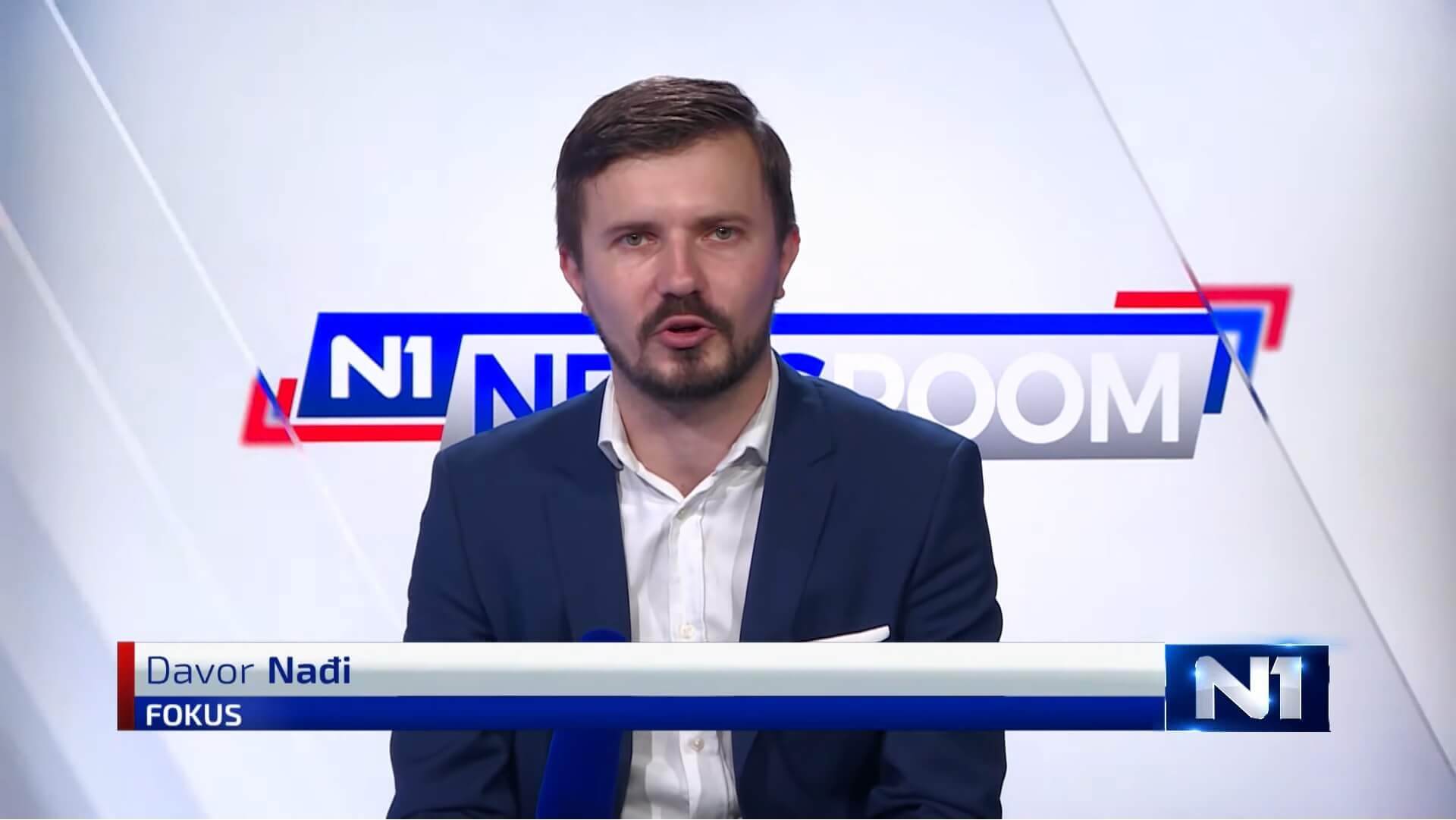
screenshot / N1
You are the president of the Fokus party, and candidates from your party had won in Sv. Nedelja, Samobor, Sv. Ivan Zelina and Dugo Selo. So, your party currently has four mayors. Can you list for our readers where your party had candidates for mayors, assemblies, and counties? How do you comment on „your mayor's" first-month post-election, and what moves would you point out as excellent in that time?
Except for these four cities, we also won in the municipalities of Križ and Pirovac. We ran for mayors and local and regional assemblies mostly in central Croatia (Zagreb and Zagreb county) but also in Čakovec, Slatina, Petrinja, Pirovac. We won 50 members of local and regional assemblies, including the president of assembly in Čakovec.
Most of our mayors were reelected, so they just continued working on projects. However, I would like to point out our new mayor of the city of Samobor, Petra Škrobot, who already contracted procurement of software for transparency of city budget and public procurement, which is one of the flagship policies of the Fokus party.
How would you briefly explain to our readers what your party represents and advocates politically? What politicians, foreign or Croatians are your role models, and why?
We represent the fight for lower taxes and fewer regulations for citizens and the private sector and for a more efficient public sector. That means that we want that people and companies can keep more of the money they earn for themselves and decide on what they want to spend it. For example, that is the only correct way to solve the housing problem – to make sure that people earn and keep more money. Further on, that means that the private sector gets better value for money through better service of the public sector where, in our vision, worst or/and unnecessary public servants would be let go, and the best workers would get a financial reward. We also talk and act on investments in infrastructure, which is important for preparing for future climate change challenges.
I can’t say I have some role models in politics, but I like the politics of Dutch PM regarding the economy because they have a small and efficient public sector that provides good service to their citizens. That allows them to keep their economy very competitive, which results in a better life for their people.
You express deep care for private investments, lowering taxes, and overall creating a better environment for private business and entrepreneurship. But, when talking about entrepreneurs in Croatia, people roll their eyes as many of our famous „entrepreneurs“ are associated with crime, corruption ties to politics, and unfair privatization that ended up in many people losing their job. What is your opinion on these entrepreneurs, such as Todorić or Horvatinčić? How to fix that negative perception of entrepreneurs?
Yes, the private sector is very important to us. We care about entrepreneurs but also about their employees. We also care about the best public servants too.
I think that public opinion on entrepreneurs is changing in a good way because of a new generation of successful entrepreneurs that succeeded in the global market with no connections to the government. Todorić and Horvatinčić are the exact opposite of them and represent everything that is wrong with this country. It’s wrong to call them entrepreneurs because they are a product of crony capitalism. The only cure to fight people like them is an independent and efficient judiciary.
New option for liberals in Croatia
You ran for mayor in Zagreb. The polls didn't give you too much of a chance, but libertarian (classical liberal) oriented site Liberal.hr said that you could be „the biggest surprise of the Zagreb elections“. To tell you the truth, it didn't seem likely you will become a mayor, but I was very surprised you didn't win a seat in the assembly. What went wrong in Zagreb, and how is it possible that the city with the most developed business climate and entrepreneurship (and with a lot of entrepreneurs) didn't reward your entrepreneurship-oriented ideas, at least with the seat in the assembly?
Well, Fokus is a new party, and I’m relatively new in politics, so a lot of people weren’t informed about our program and achievements. Fokus party didn’t exist in Zagreb until this year, while other parties were building their organization for many years, so it was hard to catch up in just a few months period during a partial lockdown. However, even though we didn’t win a seat in the assembly, we achieved some other goals. Now we have a lot of new members, and a strong organization in Zagreb and a lot of people have heard about FOKUS for the first time. Further on, we are the strongest liberal party in Zagreb, and we had better results than a lot of old traditional parties. So I believe that in the future, our support will only grow in Zagreb.
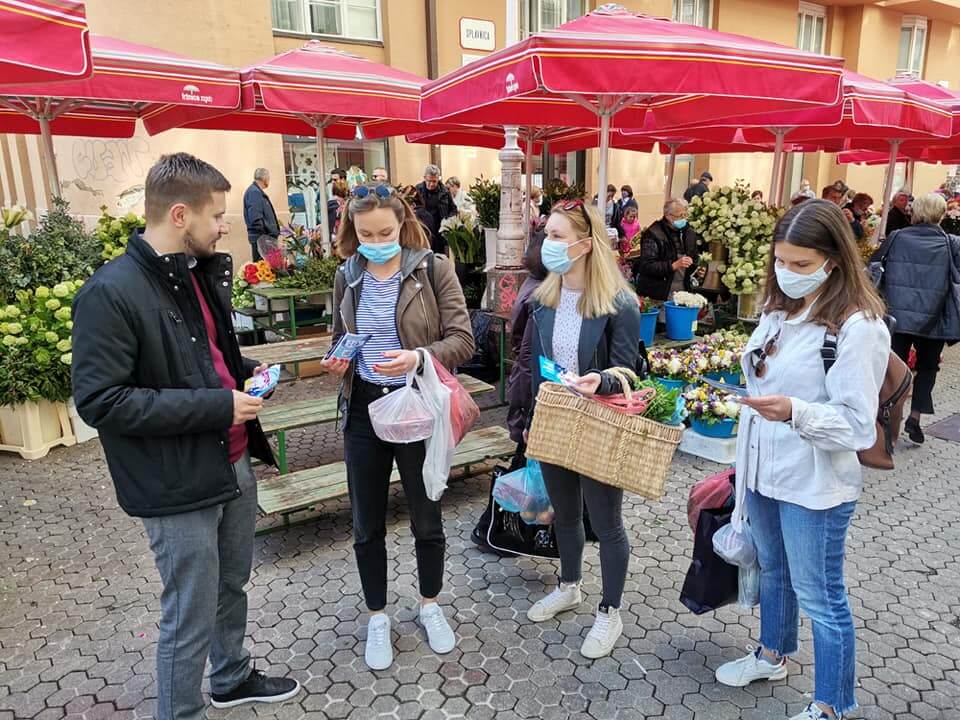
Davor Nađi during his campaign in Zagreb © Davor Nađi
You said on your Facebook site that you didn't receive enough media attention, and indeed you weren't invited to the debates (with the explanation being that only those who earned 5% in polls will be invited). However, you had banners and posters across Zagreb where you talked about how you are experienced to be a mayor because of Sveta Nedelja, where you were a deputy mayor, and the town did receive media attention few years back for amazing changes introduced there. What was your contribution to the transparency of public servants, lowering taxes, and canceling the subtax in Sveta Nedelja as deputy mayor?
I was the designer of those policies with the strong support of mayor Zurovec and the city council, and I was working on these policies from the beginning until the implementation. I’m very proud of that because Sveta Nedelja did the biggest tax cut in Croatia, became the most transparent city in Croatia, and received a reward for the best local economy three years in a row.
You criticized some of the moves by the new Zagreb mayor Tomislav Tomašević. Can you repeat what do you find problematic in his governance so far, but also, is there anything positive, something you would support him in if you made it to the Zagreb assembly?
There are some things that are good, and some are not. I reacted on one occasion, but let's wait a little bit more time before I can comment general impression so far.
However, for our readers who are foreign and didn't have the chance to see your comment in Croatian, can you briefly explain what did you found problematic with Tomašević early on to the point that you had to react publicly?
He stopped most of the public procurement. Even though I understand his concern that there might be corruption problems, that is not the way to solve that problem. That problem should be solved with better process and clear guidance from the mayor to the city administration because if public procurement is stopped for too long, there will be problems for citizens. On the other hand, in a short period of time new mayor will not be able to change much if he doesn’t make the process of public procurement more transparent and efficient.
Far from the US philosophy
Once on N1, you said political parties in Croatia are still pretty socialistic. Since on that occasion you were a guest at N1 regarding Zagreb Reconstruction Bill, did you mean they were socialistic just in that regard or in general? Are Croatians also socialistic too?
They are socialistic in general, and that bill was just the latest example. That orientation of political parties in Croatia resulted in a situation in which an enormous part of the economy depends on the state so we actually have crony capitalism. That sends the wrong message to the people, so people lose self-confidence and think they can’t earn for themselves and their families, and instead, they rely on the state to help them in every aspect of their life. They simply don’t take into account the fact that the state is corrupt and inefficient, which may be because of inadequate financial literacy.
However, it seems to me that the tide is changing with the lead from the local level from cites like Sveta Nedelja and that people are beginning to see the benefits of liberal policies.
When you say the parties are socialistic, some could think this is the heritage of Yugoslavia. However, aside from the communist experiences of South-Eastern Europe, the overall European political culture and tradition goes along the way „yes to democracy, yes to free market, yes to the individual freedoms“ but also „yes to social care, yes to free health, yes to free education, yes to supporting cultural and artistic projects, scientific research, etc“. Many people see Fokus as being against that and wanting to dismantle that European political culture with American political culture, which seems to be notorious in Europe for its health and education system, which as people see it, „is alright if you have cash, but not for the poor“. Are you indeed into „making Croatia American rather than European?“ and if so, how would you address the mentioned sectors of health, education, culture, and science? What about HRT in that context (as the idea of a public TV financed by the state is a European invention in the media landscape)?
Of course, we are not for an American-style economy. We prefer the Dutch or Scandinavian style with high economic freedom and adequate social benefits. Some people don’t understand that “free” health care doesn’t exist. Taxpayers pay for that. And if we think a little bit more about our health care system, do we really have health care that is accessible to the poor? How long are the waiting lists? People pay taxes for health care, and when they need it, then they don’t get it. That is not free health care! Almost the same is for everything else. I believe that vouchers would solve that problem because then even poor people could afford health care service from the private sector, and the public health care system would have to be more efficient and provide better value for money. The same thing is possible with education. HRT should be significantly downsized, and subscriptions decreased with the option to opt-out from their service.
When it comes to the overall Croatian political landscape, Fokus does offer something truly different from other political options, and it seems quite right to expect that Fokus will continue to grow. But, what do you think made Fokus uprise to start in central Croatia, in Sveta Nedelja, Samobor, Dugo Selo, and Sv. Ivan Zelina? Is there something that makes the culture and society in these areas different comparing to the rest of Croatia that they were the first to recognize and give a chance to your program?
Fokus also has a mayor of Pirovac in Dalmatia and president of the city council in Čakovec, members of City council in Slatina, etc, so I wouldn’t say that our policies are only recognized in central Croatia. However, we have better support in parts of Croatia, where fewer people work in the public sector and more in the private sector. That is not surprising since we promote policies that would result in a more efficient public sector and less red tape and taxation for the private sector.
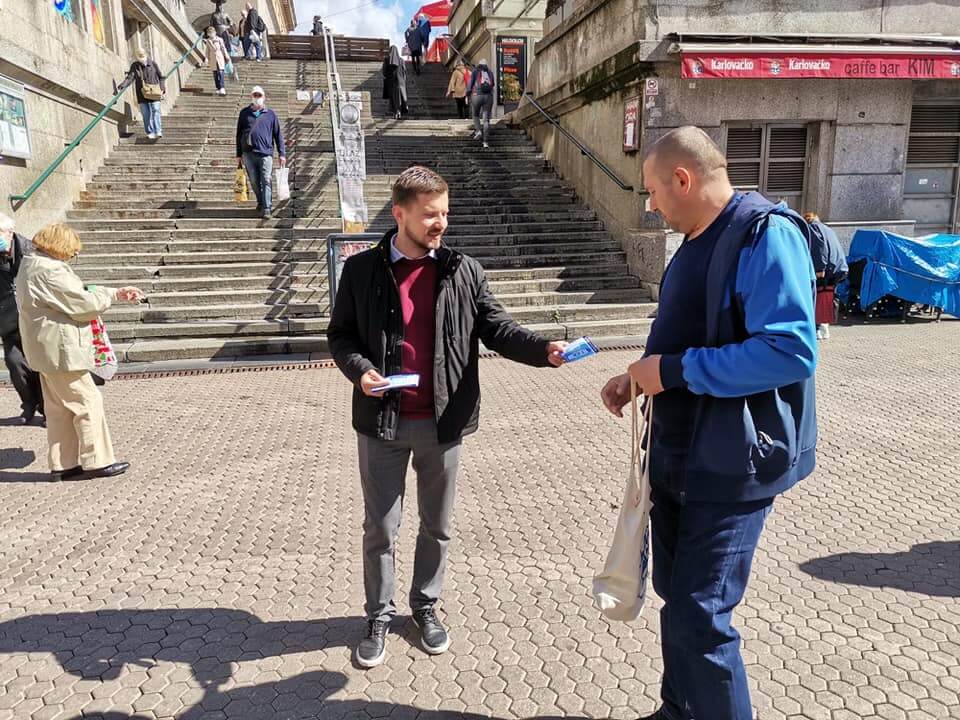 © Davor Nađi
© Davor Nađi
Up next: European elections and Croatian Parliament
On the note of local success, many view local elections as a forecast for what can happen in parliamentary elections. How would you rate your chances on the next parliament elections based on local results?
I’m very optimistic. Fokus has a very good position to grow and to achieve a great result. Fokus is already a success story and we have grown in a number of members in every part of Croatia. I believe that a new government after elections will not be formed without a strong party or coalition from the political center, and if we look at the results of local elections, Fokus is the fourth party by a number of mayors in Croatia. Also, we are the strongest party of the political center in national ratings, so that gives us reason to believe that we can gain even more support from our citizens in the future.
Back to the Zagreb elections. The two main candidates represented Gree-left values and national, conservative, sovereign values. Tomašević not only got support from some of the other European mayors but, just as with Škoro's values, there are plenty of same-minded people in Europe sharing those values. You mentioned your appreciation for the Dutch Prime Minister, but are you as well in contact with like-minded parties and politicians in the EU?
Fokus is a new party, so we still haven’t formed significant international alliances, but we can see ourselves working with other European liberal parties. Of course, the one with the best results is Dutch VVD that is in power on the state level.
But when we talk about the support that Tomašević or some right-wing parties and NGOs in Croatia had in recent years from abroad; I would say that there is a thin line between support and meddling into elections, and I would say that that line was crossed.
But, can we expect that Fokus will try to be in communication with them? Any plans for running on European Parliament elections as a good point to meet with other think-alike politicians in the EU?
I said that we don't have some significant alliances with them. However, we are in contact with some of them. We will see where that will take us. EP elections could be the first opportunity to test eventual cooperation.
And regarding what you said about there being a thin line between support and meddling in elections and how that line was crossed in Zagreb elections by NGOs, is there a risk of entrepreneurs doing the same thing when supporting, either financially or with public influence, certain parties? How can we prevent such meddling legally but yet with respect to the right of political expression to organizations and individuals?
I don’t see the financial support of Croatian entrepreneurs to political parties as a problem. The problem is only if they receive privileged treatment after the election in return for giving financial support. I would go one step further and say that we should welcome donations of private individuals and companies to political parties because that would mean that political parties would be less dependant on public financing. That should be a normal part of the domestic election process. However, if foreign money is included in financing political parties or their leaders, direct or through other channels, then we as a state have a problem.
To conclude, you are MA of the economy, and you talk a lot about economic solutions. Are our economy and business truly the core issues politicians need to address? Additionally, what are your views and the views of Fokus on defense policy, diplomacy, international relations, emigration policy (asylum seekers trying to enter Croatia), Croatian veterans, diaspora, and the ideological, historical disputes among Croatians, which for better or worse seem to often resolve the elections on a parliamentary level?
It would take a much longer conversation to answer all these questions, but I will try to answer in few sentences. Yes, I believe that economy is the most important issue that needs to be addressed because that is the place where value is created and which provides a better life for people and necessary funding for all government programs. Without a strong economy, the state can’t finance defense or social benefits. Unfortunately, you are right that elections are, in the biggest part, decided on other issues that target emotions rather than reason.
When it comes to defense policies, liberals believe that the basic tasks of the state are to provide to their citizen's rule of law and protection from foreign and domestic threats. So we should have adequate defense capabilities. On the other hand, we have no problem financing social benefits to real war veterans, however almost 30 years after the war, there shouldn’t be any new users of these benefits. Regarding international relations, our position is that Croatia should remain an EU and NATO member with strong relationships with the USA and with a clear position that China can’t be our partner until they don’t behave by the same rules like everyone else with the biggest concern regarding human rights issues.
Even though we are a small country, that doesn’t mean we can’t lead by example. It is up to us if we will stay on the bottom of every European statistic table or we will start going up. We have all the resources we need to thrive.
Learn more about Croatian politics and history since 1990 on our TC page.
For more about politics in Croatia, follow TCN's dedicated page.
Sveta Nedelja Helps Caterers and Gym Owners with 1,500 Kuna
February 22, 2021 – As one of the five best cities in Croatia regarding the living standard, Sveta Nedelja helps caterers and gym owners with one-time assistance of 1,500 kuna.
Although gyms and sports centers opened their doors on February 15 after two and a half months due to epidemiological measures, both gym owners and caterers struggle to cope with the revenue loss. And while the Government aid of 4,000 kuna for all catering and sports workers is still coming, many find this amount insufficient to live normally. It is still not known when and whether the catering facilities in Croatia will be opened.
However, some encouraging news comes for Sveta Nedelja's owners of catering facilities and gyms. Namely, the mayor of Sveta Nedelja, Dario Zurovec, announced on his Facebook profile that all owners of catering facilities and gyms in the city area would receive one-time assistance of 1,500 kuna.
"One-time assistance of the Sveta Nedelja City to cafes, restaurants, gyms, and fitness centers in the amount of 1,500 kuna will at least somewhat alleviate the difficult situation in which our fellow citizens find themselves, whose right to work is limited due to epidemiological measures. Vision, ambition, development, and responsible management have resulted in our city setting standards for the whole of Croatia in recent years. I want us to continue to be that – an example for others city," wrote Mayor Dario Zurović on his Facebook page.
Lately, only positive connotations have been associated with the city of Sveta Nedelja. With their investment in the city development, Sveta Nedelja has been named the best medium-sized town in Croatia for the economy for the last few years. Also, they have been at the very top of the best cities in Croatia for quality of life for several years. Now Sveta Nedelja helps caterers and gym owners with the desire to be a positive example to other Croatian cities as well.
Details of the public call for funds allocated from the city budget have been published on the official website of Sveta Nedelja. All Sveta Nedelja's residents whose work has been suspended by decisions of the Headquarters must fill the form and attach the necessary documentation to receive funds. The application for assistance is open until March 31, 2021.
For the latest news from Dario Zurovec and Sveta Nedelja, follow the dedicated TCN section.
Ludbreg Holy Sunday Feast Prepares For 100, 000 Pilgrims
August 28, 2020 - The traditional Ludbreg Days of Holy Sunday usually attracts more than 100 000 pilgrims. The feast will be held from 3 - 7 September under special epidemiolocal measures.
So popular is the traditional visit of the faithful on Ludbreg's Holy Sunday that the event is usually stretched out over ten days. But not this year. The event duration has been reduced due to the ongoing pandemic. Under special epidemiolocal measures, the town is still prepared to welcome as many as want to come. "It's impossible to plan for an exact number of how many will come," Ludbreg Tourist Board director, Andreja Horvat tells TCN. "Some will not come out of fear; some will come because it is a church holiday. There are no organized buses this year, and we have reduced promotion to a bare minimum because we do not want to invite people to a large gathering. But, for however many who do come, we are prepared."
This year there will be no accompanying programs (concerts, exhibitions, promotions, etc.). All masses will be held outdoors, i,e in the sanctuary. Following the masses, pilgrims will be invited, as usual, to attend the outdoor market, which will still take place on the town streets and the central square. To afford everyone more room, this year the amusement park has been moved to Otok Mladosti (The Island of Youth).
The lack of knowing exact numbers has given some difficulties to local caterers. They don’t know exactly how they should prepare for these days; how many will come? Will they stay and eat after Mass, as they usually do? How much food should they order?.
"Given that the situation is changing from day to day, we hope that we already have plans for everything," says Andreja Horvat. "Still, we expect new civil protection measures against Coronavirus for Varaždin County on September 1. Whether they will relate to the reduction of the number of people at various gatherings, we do not yet know."
Ludbreg's Days of Holy Sunday is based on a long tradition of pilgrimage to a unique Croatian sanctuary. Pope Leo X in 1513 acknowledged and confirmed the miraculous appearance of the Blood of Christ that took place in 1411 in the chapel of today's Batthyany Castle, Ludbreg. Ever since, pilgrims from all over the world have been drawn to the town, its shrine, and the Holy relic.
Ludbreg is unique within Croatia and one of the few shrines in the Christian world confirmed by a written decree from the Pope. The miraculous event is said to have taken place when a priest doubted the words of the transubstantiation of the bread and wine into the true body and blood of Jesus. Shortly afterward, the actual Blood of Christ is said to have appeared. Word of the miracle soon spread around the Christian world and pilgrimages began, even before the confirmation by the Vatican.
The faithful have visited since then, especially gathering each year during the ten days of Ludbreg Holy Sunday. Today, the Holy relic can be visited in the parish church of the Holy Trinity, where it is held in a chalice and kept in a beautiful baroque display.
Take a look at TCN's video stories about Ludbreg to learn about the tallest statue of St. Vincent in the world or about Sara Kolak, the town's gold-winning javelin thrower who brought her gold medal back from the 2016 Olympics in Rio.
If you want to learn more about the miracle city, read our detailed travel guide: Discover The Croatian Road Less Travelled: Ludbreg.
For the latest travel info, bookmark our main travel info article, which is updated daily.
Read the Croatian Travel Update in your language - now available in 24 languages
Join the Total Croatia Travel INFO Viber community.
Discover Sveta Nedjelja on Hvar: Wine, Cliffs, Wedding Sunset Magic (VIDEO)
May 7, 2020 - Continuing our new vlog, TCN Talks, today we discover Sveta Nedjelja on the south side of Hvar - wine, wedding, rock climbing and sunset territory!
Where to go on a day off on Sunday on the island of Hvar? The village of 'Holy Sunday' of course...
Meet Sveta Nedjelja on the south side of Hvar in the latest installment of our new vlog, TCN Talks.
It is a village which is famous for the rich Plavac Mali wines produced from the very steep vineyards sloping down into the Adriatic, with Zlatan Otok's Plavac Mali Grand Cru one of the most highly-prized reds in all Croatia.
But there is a lot more to Sveta Nedjelja than just wine, as we discover sitting on the bench in idyllic Veli Kamik, the small islet which is fast becoming in an Instagram and wedding location hit (learn more about this delightful spot in our recent feature article on Veli Kamik).
And of course, to reach Sveta Nedjelja, you have to negotiate the Pitve tunnel
Here is a guide to the iconic tunnel's history, driving etiquette - and wine cellar.
Being to enjoy the idea of Bench Tourism? Here is a detailed overview of not only probably the best view in all Dalmatia, but also one which is extremely content-rich and full of magic.
And for those who like to wander, there are few better walks than that along the northern coast of Hvar, from Jelsa to Vrboska. Here is what awaits when you reach the place which is often called 'Little Venice.'
If you would like to follow TCN Talks and our random journey through life in Croatia, you can check out the channel here.
Looking to learn more about Hvar? All the best online tools are in our Virtual Croatia - Discover Hvar.
Veli Kamik, the Hidden Romantic Wedding Gem on Hvar's Southern Shore
March 6, 2020 - Meet Veli Kamik, a small rock in a divine spot with quite a history on Hvar's southern shore - and an increasingly popular wedding destination.
When I first bought a house on Hvar back in 2002, I had only heard of the island for the first time three days before. I moved to Jelsa and slowly started to discover that I really had found Paradise on Earth.
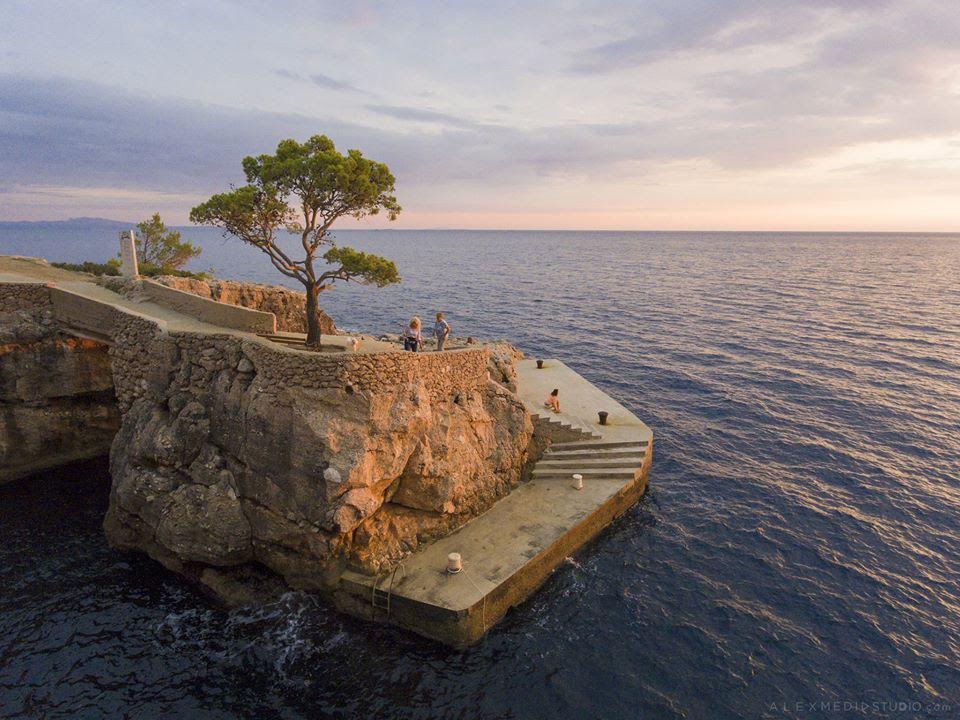
There was very little information available at that time about destinations, and so each new trip was a genuine discovery. I was particularly fascinated by going to the south side of the island. There was the most insane tunnel near Pitve that was literally carved out of rock, single lane with two passing places, and no lights. One of the great undiscovered film locations of the world. On the other side of the tunnel lay the southern slopes of Hvar, whose south-facing vineyards into the Adriatic I was to learn had some of the best Plavac Mali vineyards in the world. My initial trips through the tunnel took me to Zavala, Gromic Dolac and Ivan Dolac, until one day I decided to follow the road right to the end, and then I saw it.
Sveta Nedjelja.
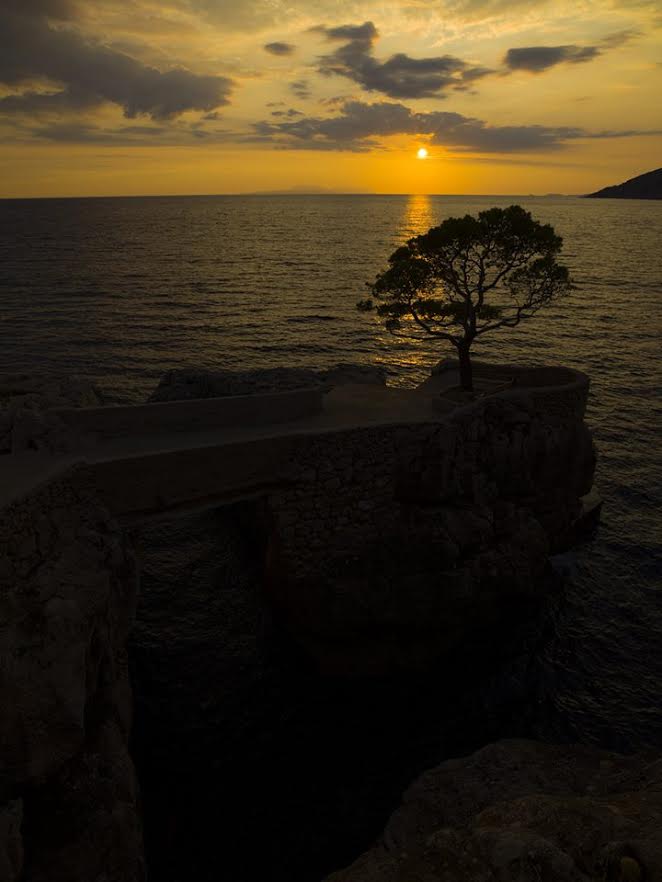
A small village which really was like no other Surrounded by sheer cliffs above (where one could find a monastery built in a cave high above the village), with the majestic vineyards of Zlatan Otok, one of Croatia's top wineries, the things I remember the most from that first trip were the extraordinary sunset and a photogenic tree on a tiny rock which had been connected to the rest of the island by a tiny bridge. I learned later that it was called Veli Kamik.
It was one of the most romantic places I have ever seen.
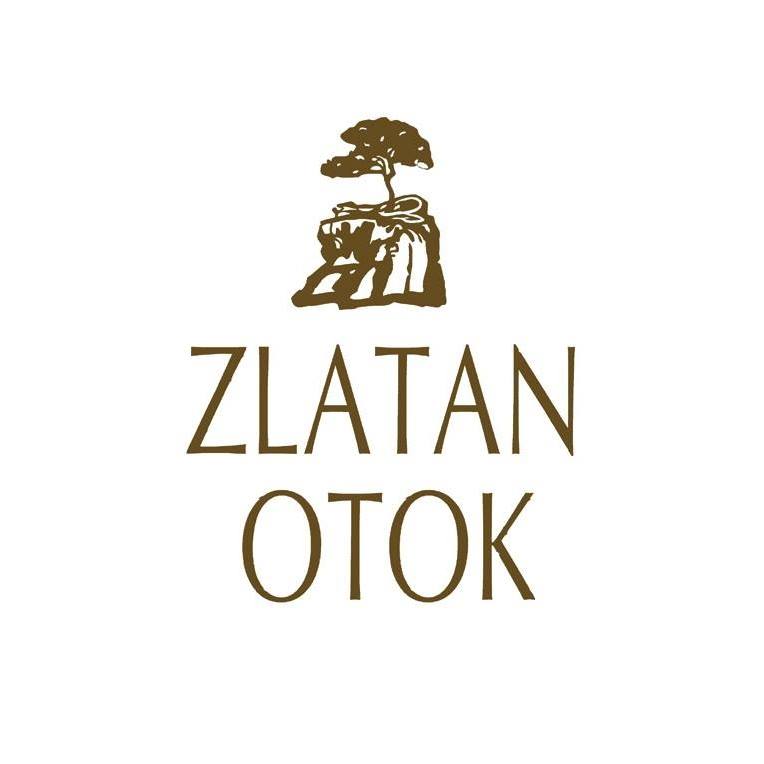
It turns out that it was quite a famous tree as well, one of the most famous in all Croatia, as Zlatan Otok adopted it for their iconic logo to celebrate their Sveta Nedjelja roots.
I was surprised to learn that Sveta Nedjelja was only connected by road in 1975. Before then, everything came by boat only. I have been meaning for years to find out more about the village's history, especially that of this magical Veli Kamik tree and rock, and I am grateful to Vilma Plenkovic Plazonja from Villa Perka in Sveta Nedjelja, for not only providing me with information on the history, but also introducing me to a romantic part of Veli Kamik I was unaware of - a hidden gem of a wedding destination.
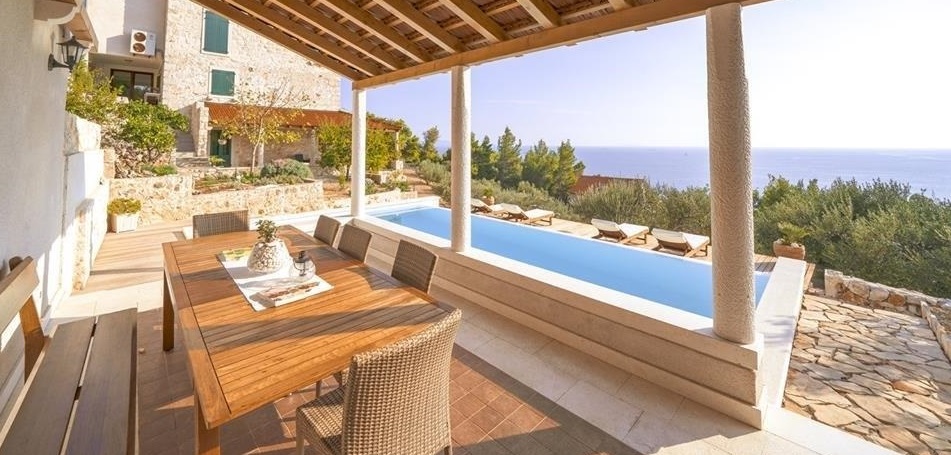
(The view from Villa Perka)
Vilma's family first got into tourism back in early 1960. Access to the village was either by boat or on foot over the top of the island's peak of Sveti Nikola. Guests would arrive in Hvar Town, and Vilma's family would bring them by boat to Sveta Nedjelja, quite an additional journey for those who had travelled from Germany, Austria and Italy. Guests would come year on year, typically for three weeks. There were no restaurants back then, and her mother would prepare three meals a day. A different era.
But it was when we got talking about Veli Kamik and its history that things got really interesting. I really had no idea of the history of its pier of connection to the main island.
The pier on Veli Kamik was built in 1924. It was used for boarding of the loads onto the larger boats, that were unable to dock in Sv. Nedjelja, at the location where the marina is today, because of the insufficient depth. At the time, Veli Kamik was connected by a wooden bridge, and only in 1938 was a concrete bridge built on the wooden base.
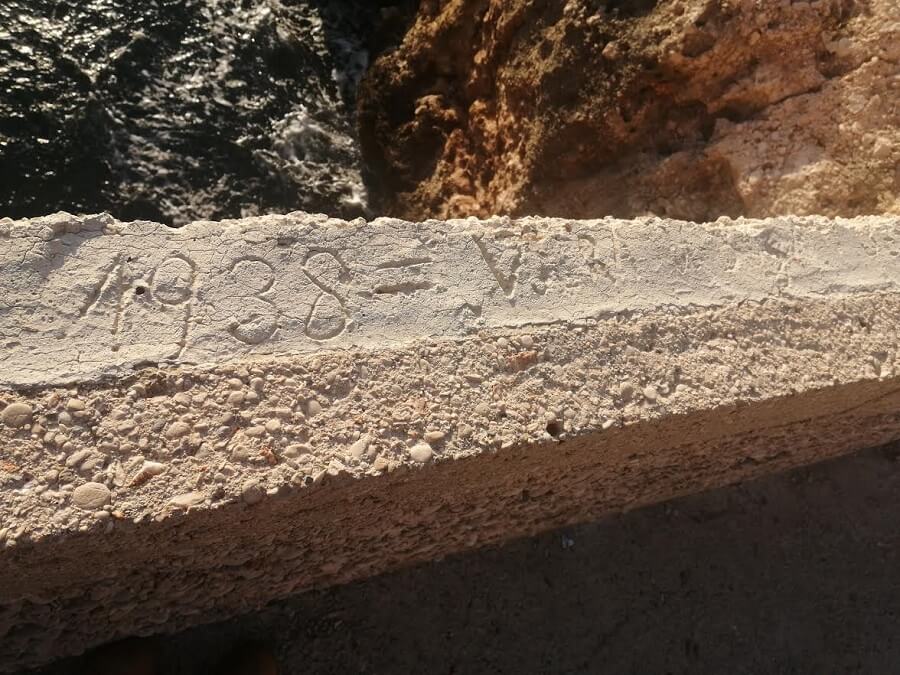
You can still see the sign today, it says ‘The Bridge of the Peasant Unity / Faith in God and Peasant Unity / August 20, 1938’ (Most seljačke sloge / Vjera u Boga i seljačka sloga/ 20.VIII 1938). At that time the organisation Peasant Unity was active, organising and managing project which were of public importance.
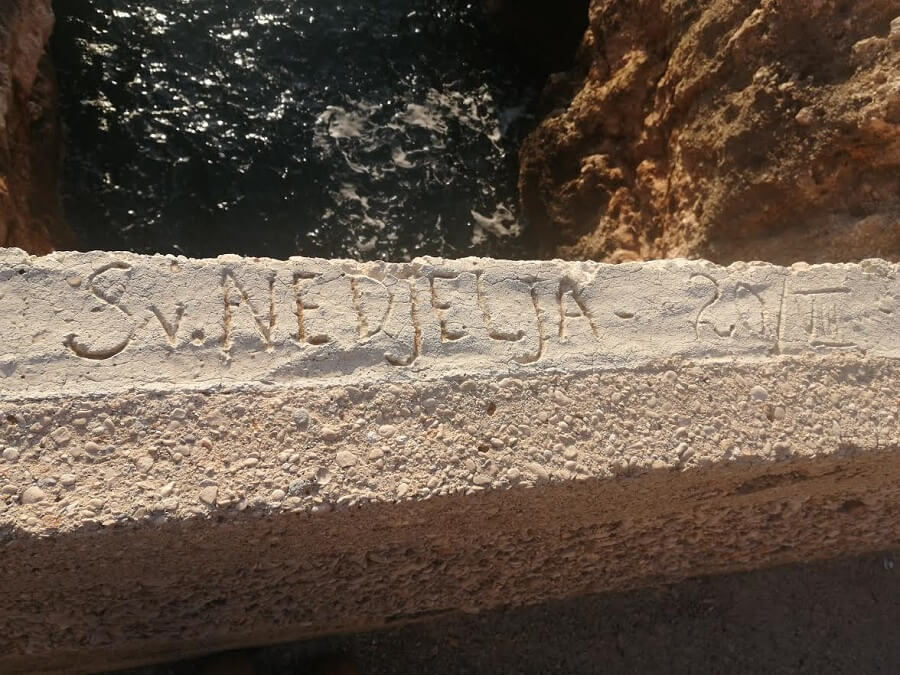
On August 20, 1988 a big party was organised to celebrate the 50th anniversary of the bridge. A local chronicler Ćiro Milatić described the event:
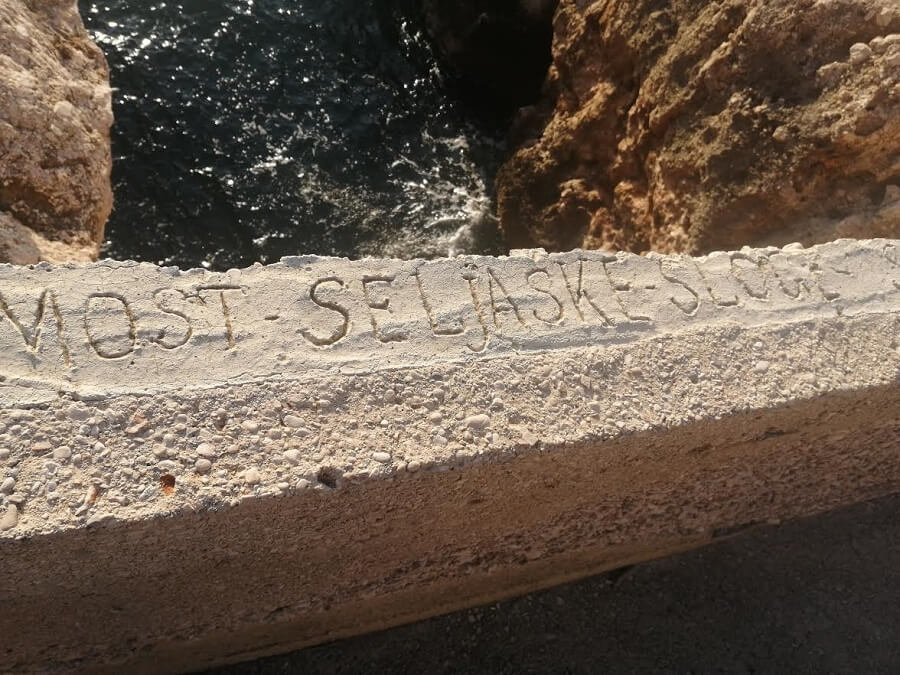
“For the 50th anniversary of the bridge being built, a big party was organized. Three lambs were roasted on a spit, and almost a hundred litres of red wine were drunk. 500 plastic cups were acquired for the occasion. There was as much of bread, salted sardine and sweets as anyone might’ve wanted. Jumping from the bridge was organized, as was a donkey race, running in lavender sacks, singing, tug of war and many other types of entertainment. The prettiest girl was also chosen, and in the finale of the pageant there were two foreign girls and a local girl. The concrete bridge was completed on August 20, 1938 and the wine was mostly boarded onto ships which docked there. Each household paid 5 dinars back in the day to have 100 litres boarded on ships. At the time, a litre of wine cost 2 dinars.
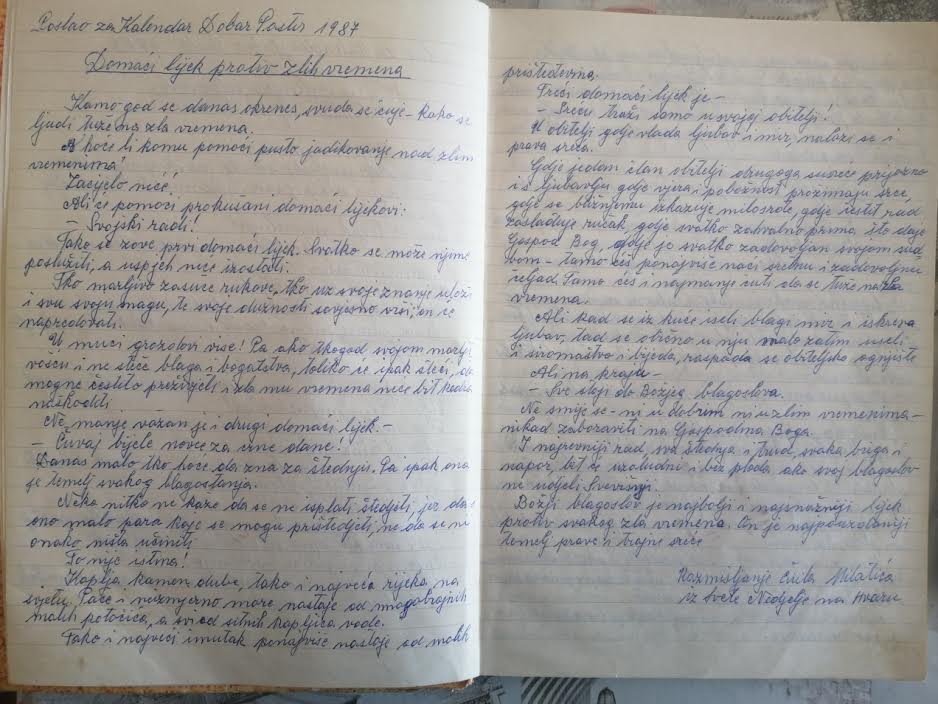
In 1948 a permanent boat line was established. Twice a week, in the early morning hours, a steamboat which sailed between Vela Luka – Zavala – Sveta Nedjelja – Hvar – Split docked here, and in the evenings, it was returning to Vela Luka. During the rough weather, when the boat couldn’t dock there, two locals transported the passengers on their boat “Pčela” and were paid for their services by Jadrolinija. They were obligated to take the passengers to Hvar any time it was necessary, especially so that they could visit the doctor. The boat line was discontinued in 1961, and after that only the local people maintained the line to and from Hvar.
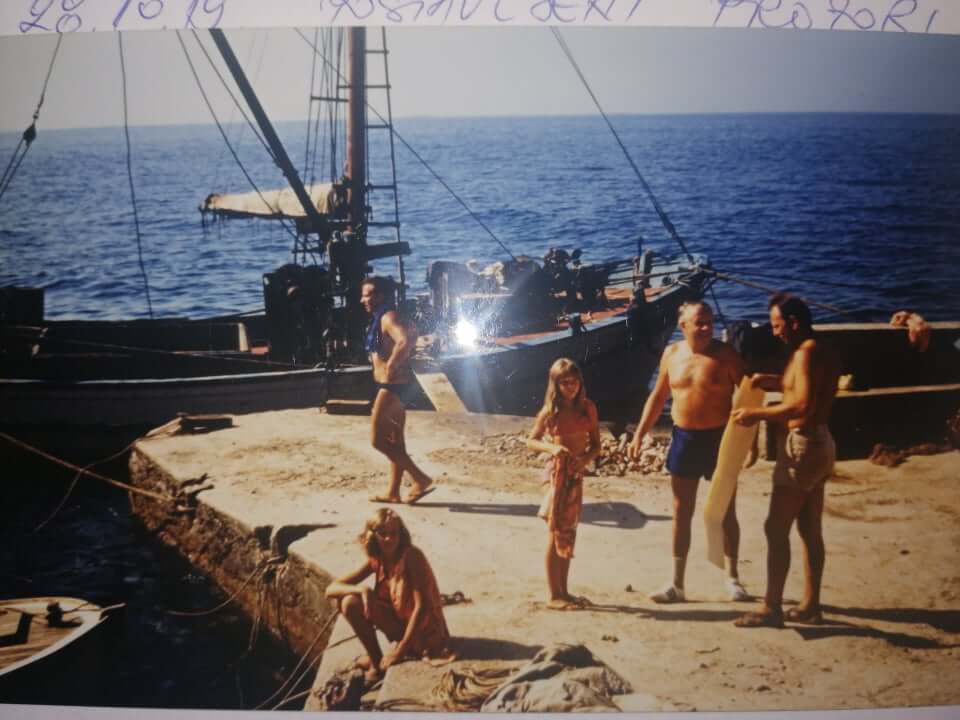
(The pier at Sveta Nedjelja in 1972, where today is the marina and Bilo Idro restaurant)
Fabulous stuff.
And the attractions of Veli Kamik continue.
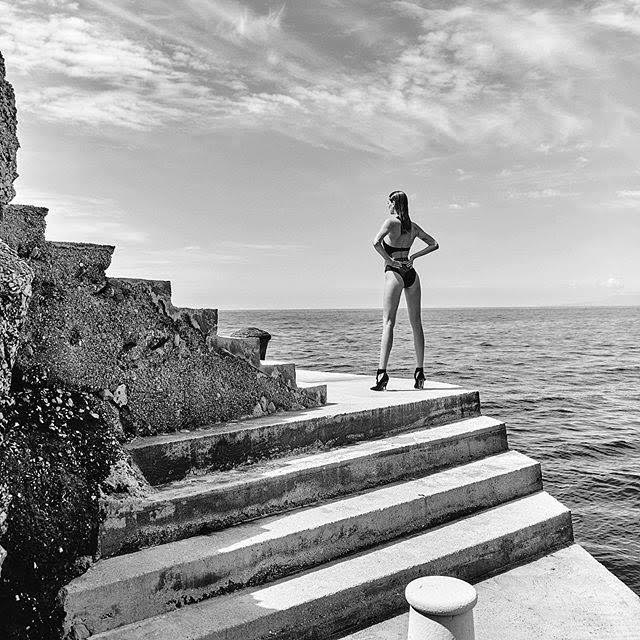
Among the Villa Perka guests last June were Czech model Denisa Dvorzakova and her crew who did a photo shoot for the cover of Elle Magazine. And you don't have to be a model to take your selfie there - it has become a very popular spot for holiday snaps.
This charismatic rock is also attracting more daredevil tourists, and it has become one of the prime spots on Hvar for adrenaline jumping into the sea. Check out someone who is braver than me in the video above.
And I was very pleased when Vilma told me about another aspect of tourism which is growing at Villa Perka as I remembered those first romantic memories of Villa Perka all those years ago - it is now an emerging wedding destination.
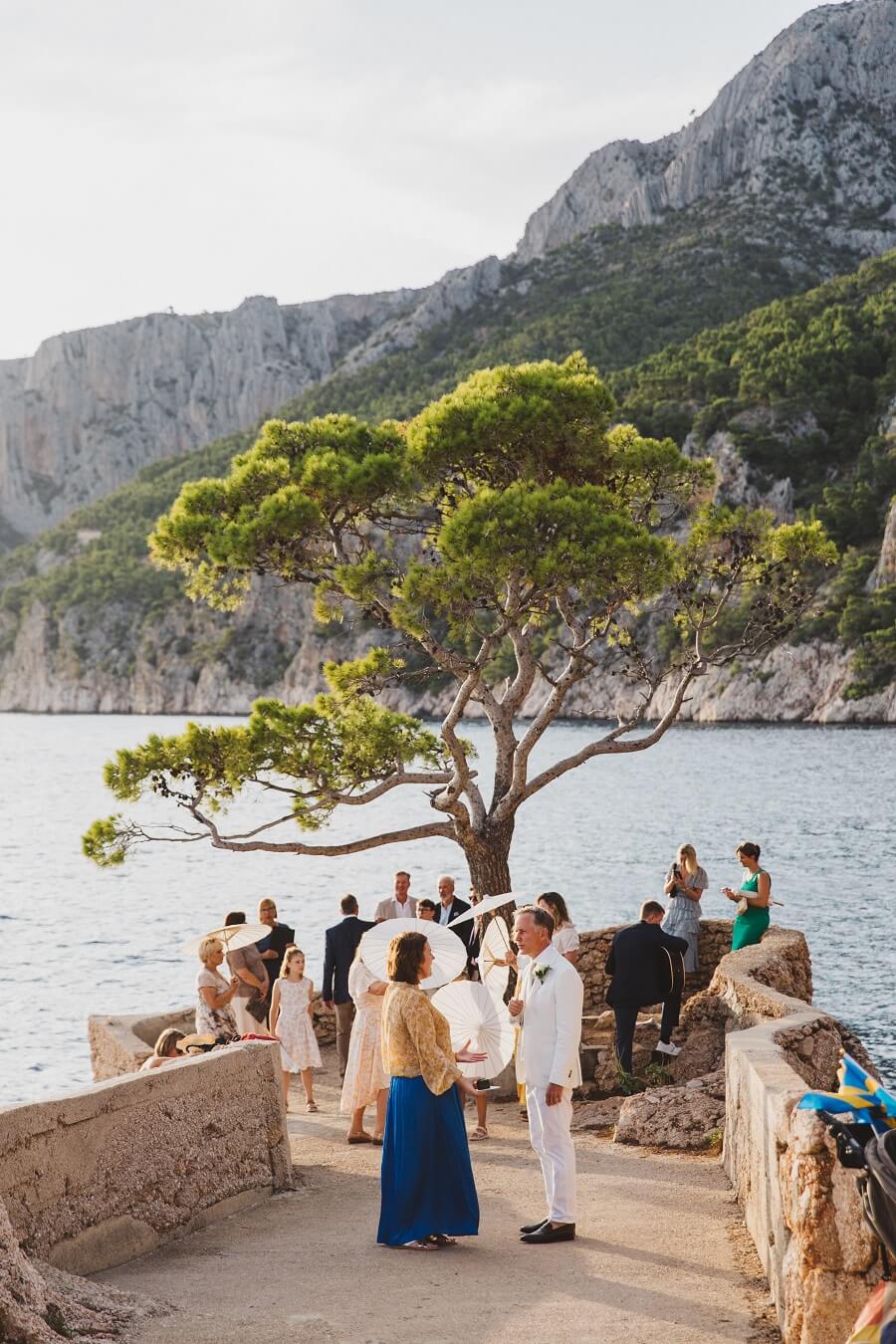
Thanks to Vilma for sharing these GREAT photos (with permission from the happy couple) of a Swedish wedding, which took place last year. The guests stayed at Villa Perka, and the ceremony was conducted under the famous tree on Veli Kamik.
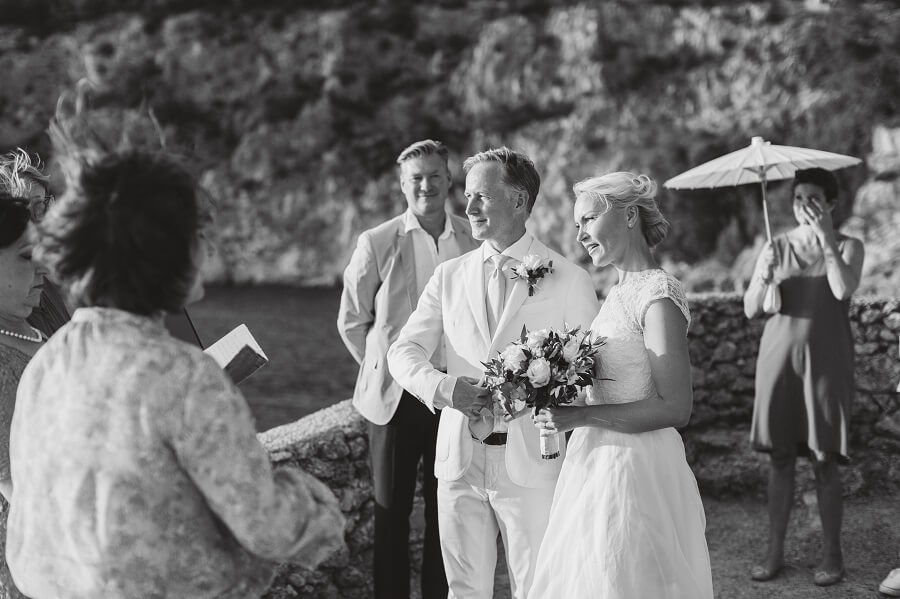
This is what I love about the private sector in Croatian tourism - taking the initiative to create new products.
As part of her offer, Vilma offers the services almost akin to a wedding planner. Her local knowledge on the island connects the couple to photographers, florists, hairdressers, translators, the registrar, the consulates in Split, as well as local suppliers such as Hvar Chef in Stari Grad.
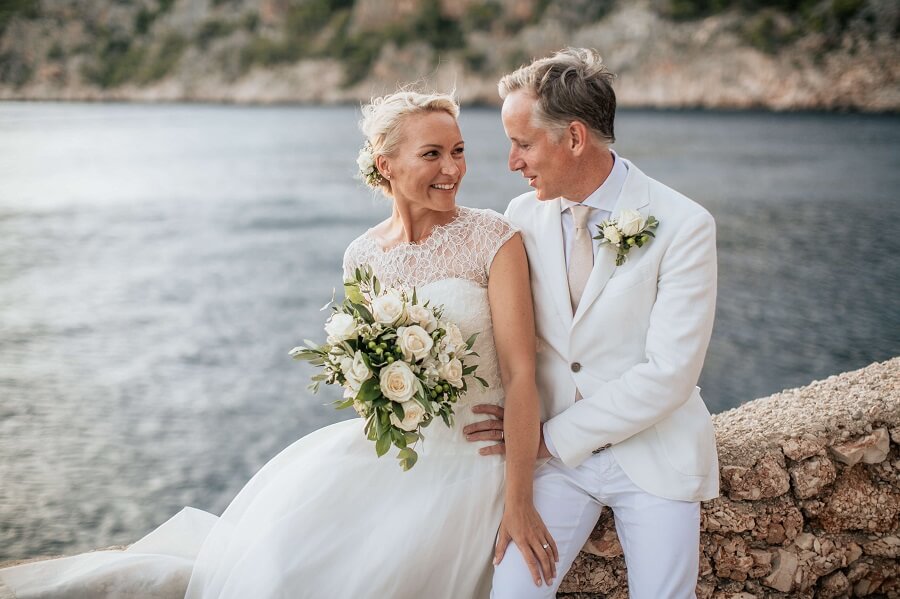
Having the main wedding party housed in one place such as Villa Perka obviously has its advantages for the wedding party, as well as allowing her to concentrate on looking after one booking of 14 guests, rather than different families. Additional guests are housed in nearby accommodation belonging to Vilma's contacts.
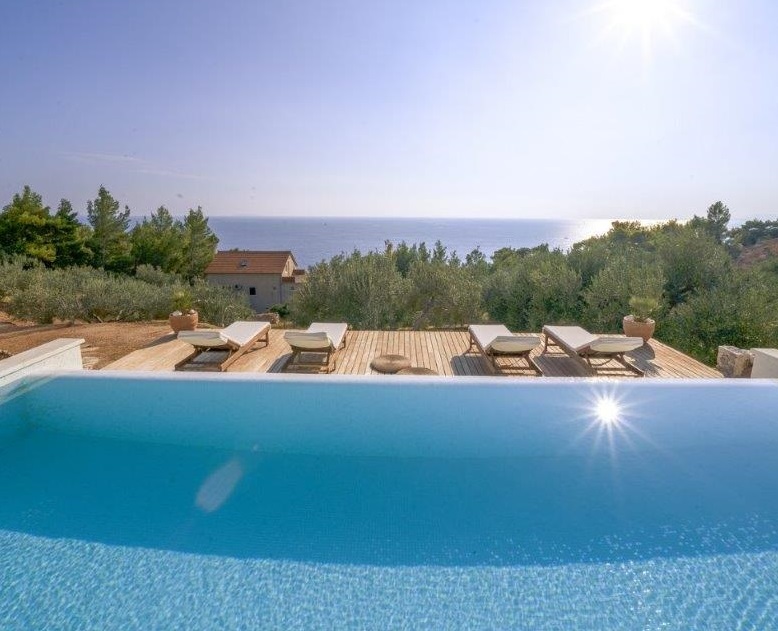
I can think of worse places to spend a wedding and honeymoon...
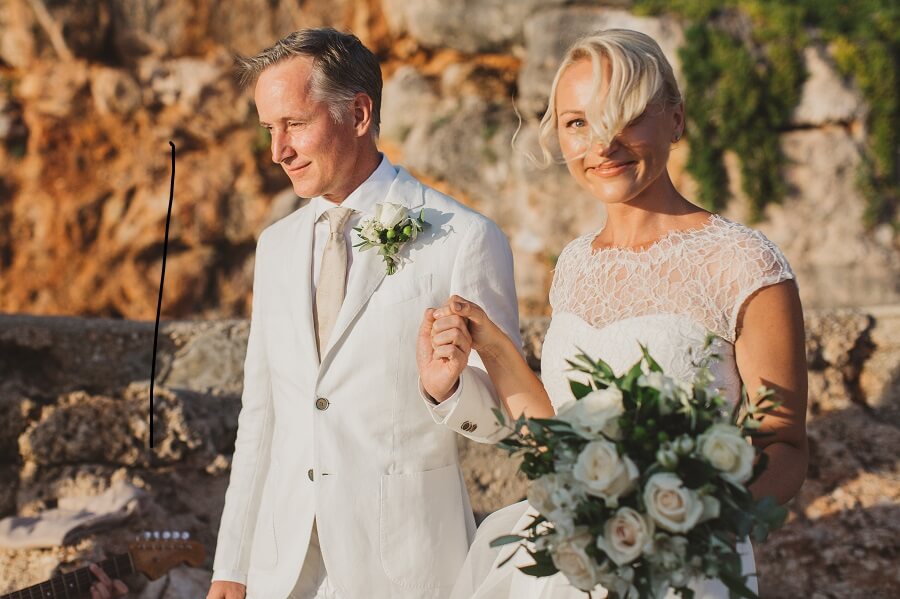
The wedding industry is becoming increasingly personalised, with people choosing to do their own thing, and with many more locations now available.
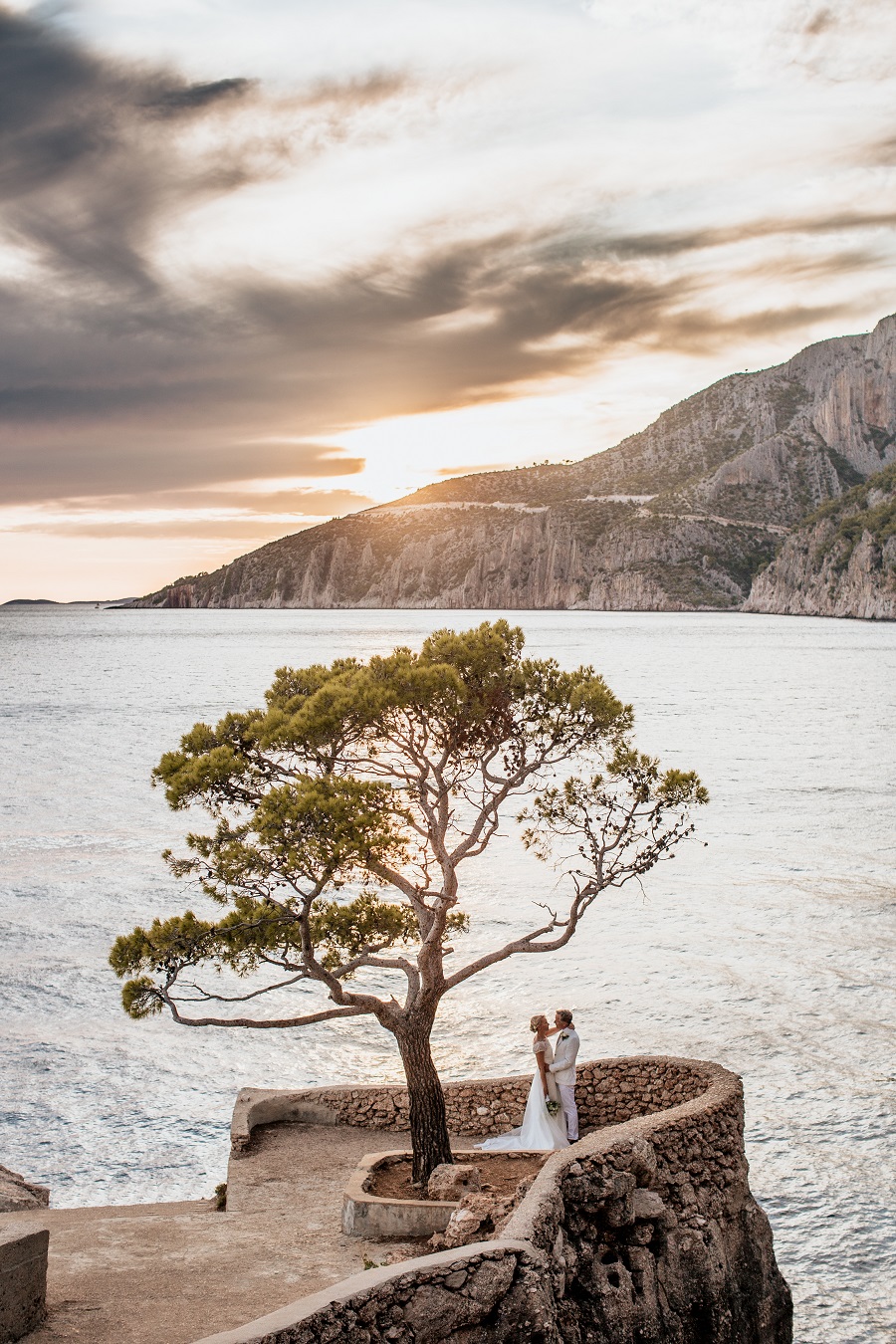
And Veli Kamik certainly ticks all the boxes for couples looking for an extraordinary location totally off the beaten path.
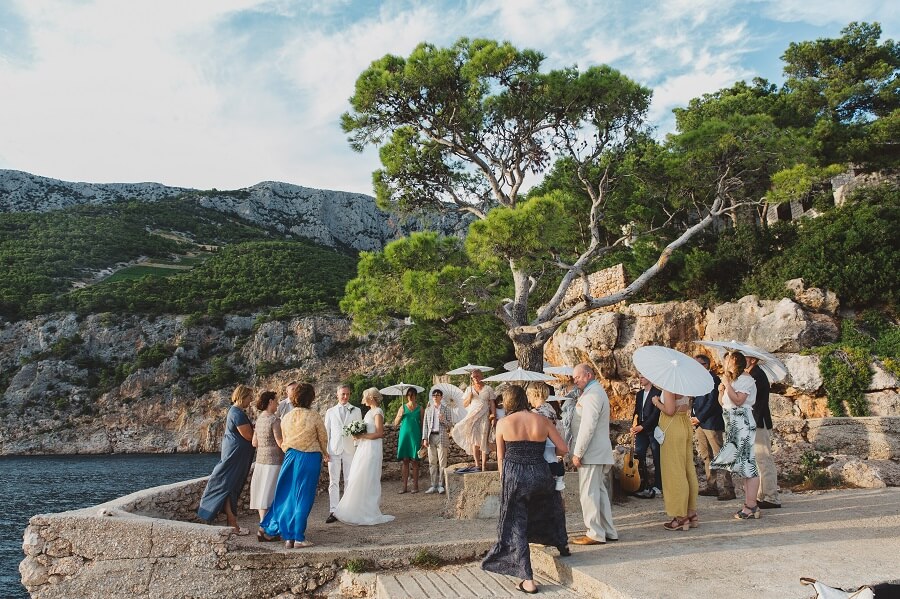
A little rock with a very big heart and almost 100 years of giving to the people of Sveta Nedjelja and the many tourists who visit.
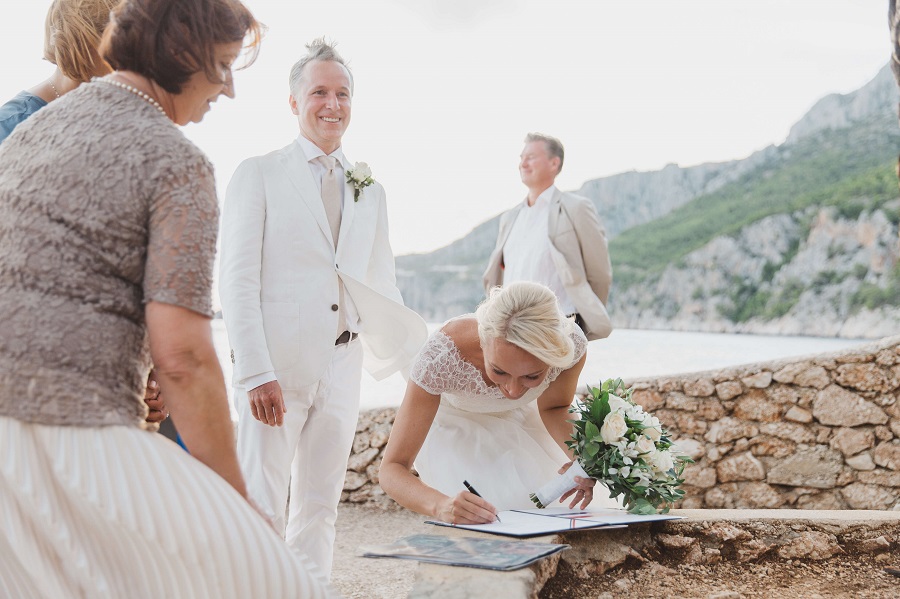
Many thanks to Vilma for taking the time and effort to research Veli Kamik and this little gem of Hvar history. If you are thinking of getting married and looking for a great location - or even if you aren't, she has many more stories, just one of the great additional services on offer at Villa Perka. And check out more photos at the Swedish wedding party at the Villa Perka reception, below.
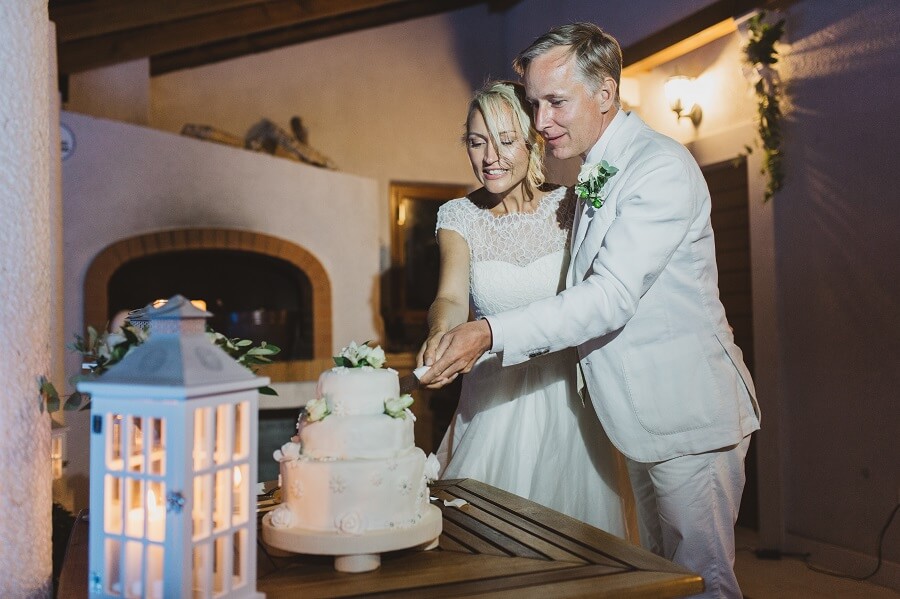
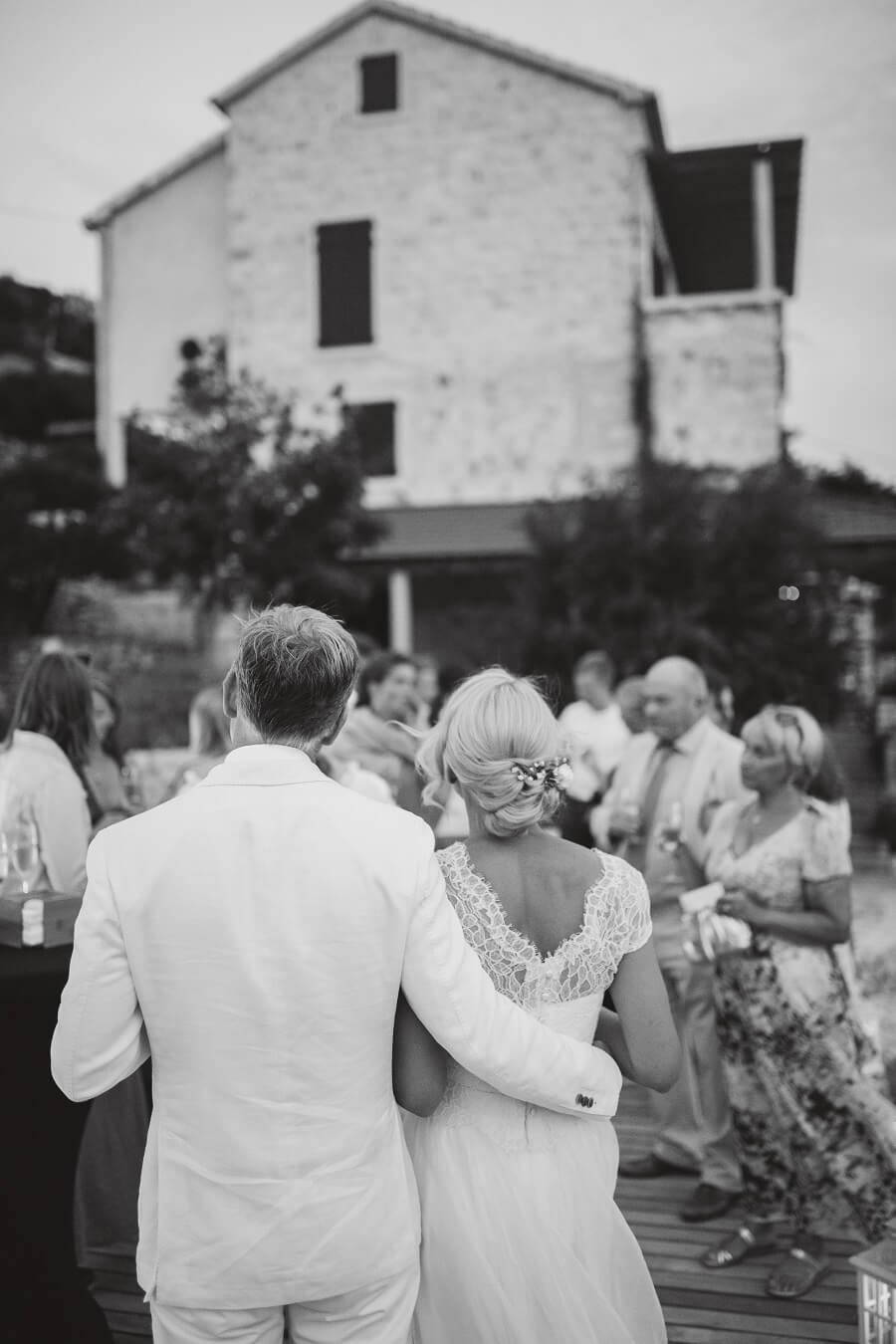
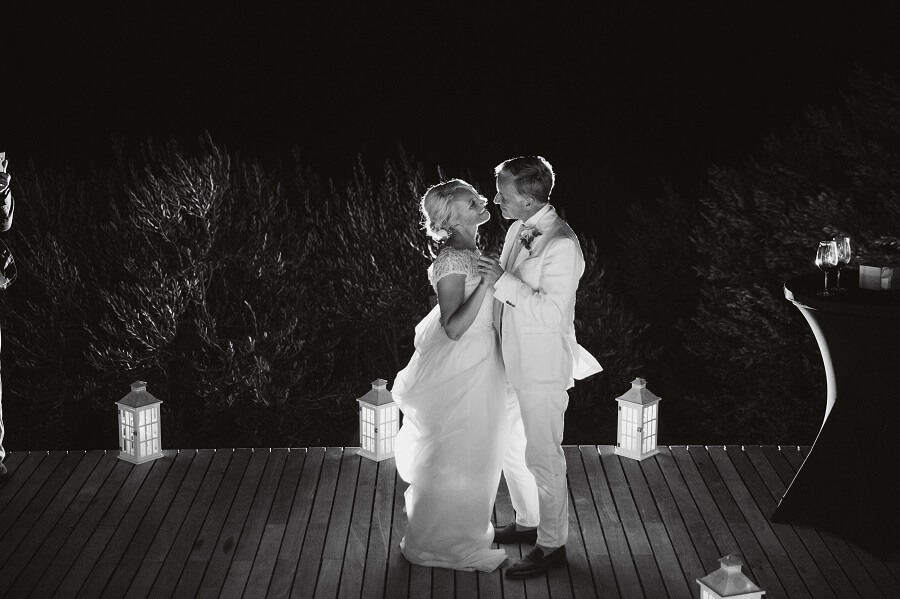
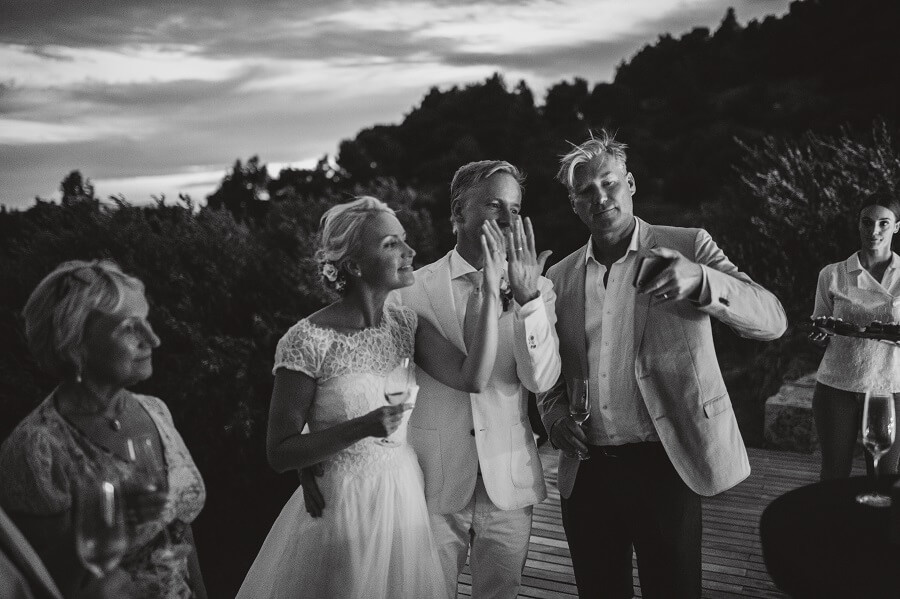
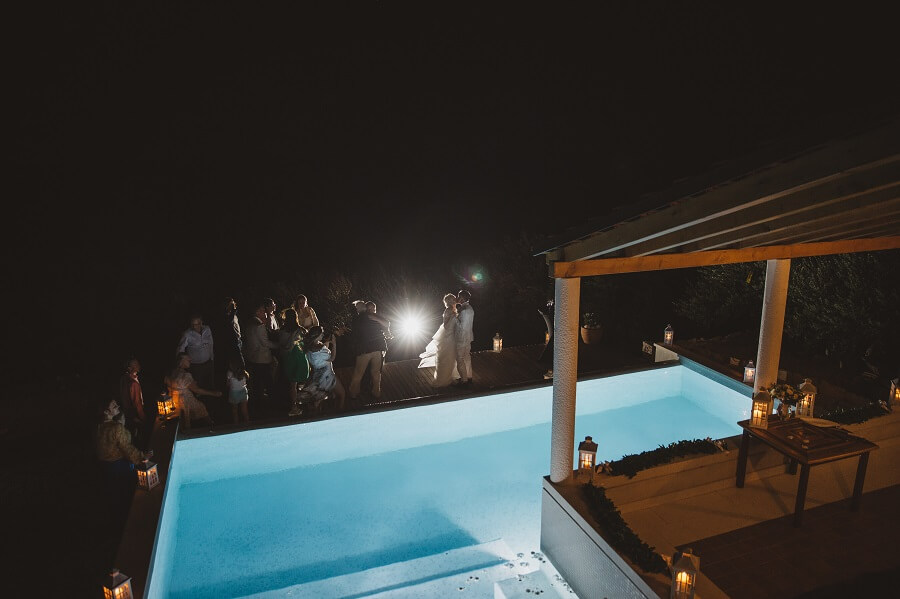
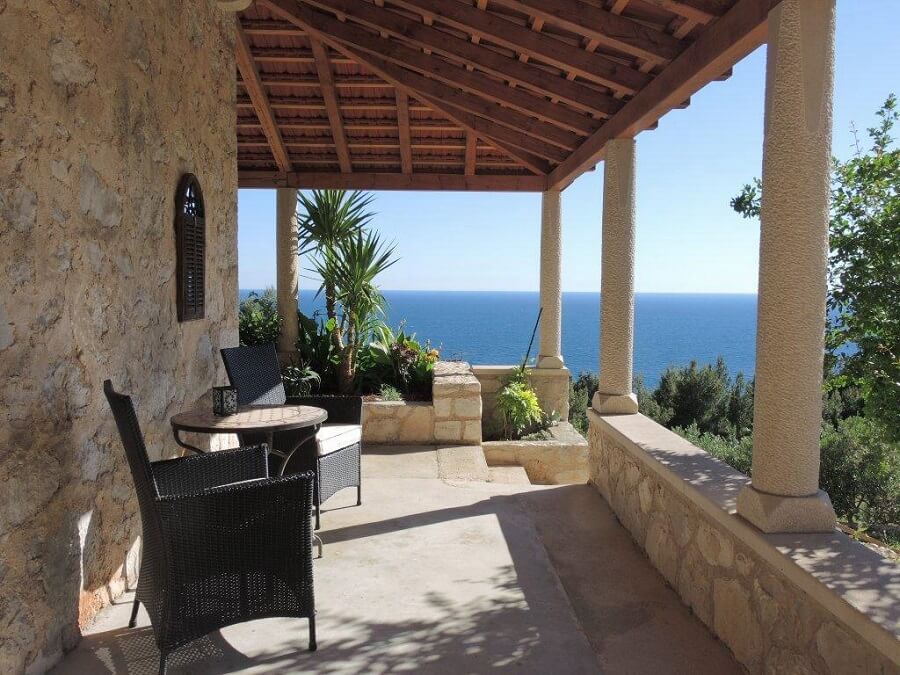
Sveta Nedjelja to Host Spectacular Rally Show This Weekend
The Santa Domenica Rally Show, which will be held in Sveta Nedjelja this weekend, will host 109 crews from 10 countries, the organizers have announced. It is a timed rally competition, but also includes additional points for the most attractive driving and jumping skills. The rally includes four sections, totaling 29.28 kilometers, reports Lokalni.hr on November 23, 2018.
The shakedown will be held on Saturday at 2 pm at the Orešje Lake, while the ceremonial start will begin at 6.30 pm on Ante Starčević Square in Sveta Nedjelja. The stages will begin on Sunday near Samobor.
Chairman of the Organizing Committee Daniel Vojvodić said the rally would feature top drivers and teams but notes that other drivers who have signed up in time and performed the necessary qualifying tasks were also welcome.
This year, the rally will feature top cars worth more than 200,000 euro each, and many smaller cars as well, including an old Trabant. All the cars put together are worth more than ten million euro. In addition to top rally drivers, the event will include many drivers who usually do not participate in this kind of competitions.
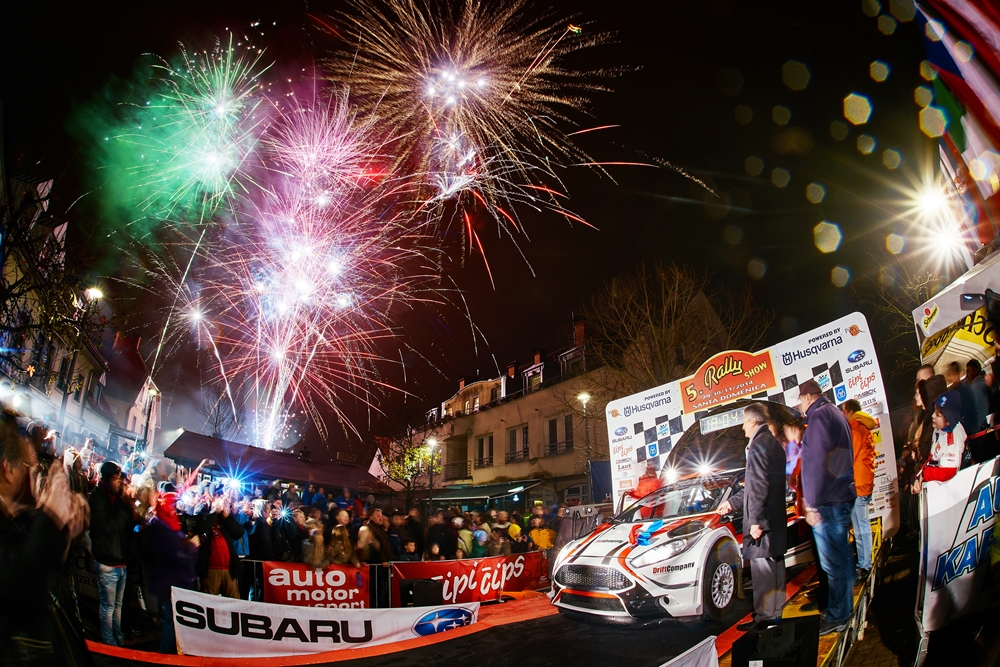
The organizers say that the Santa Domenica Rally Show is the largest and most visited rally show event in this part of Europe. There are more and more spectators every year, and this year more than 10,000 people from ten countries are expected to attend the rally.
Sveta Nedjelja Mayor Dario Zurovec said he is extremely proud that the event is taking place in his town. “The Rally Show has not just fulfilled our expectations but exceeded them. This is one of the strongest sports competitions in this region, especially in the rally world, and they will always have the full support of the town authorities," he said.
“For most of us, the rally is the toughest, most demanding, most complex but also the most dangerous car driving event. Therefore, the safety of all participants is a top priority for us," said the Rally Show director Daut Damarija. He added that the event concept is similar to last year's, with some minor changes – this year there will be a circular segment and a more attractive site for landings.
The Sveta Nedjelja Tourist Board said that the Rally Show is the most visited event in Sveta Nedjelja, with all accommodation capacities in the town full for the event weekend.
For more on sports in Croatia, click here.
Translated from Lokalni.hr.


